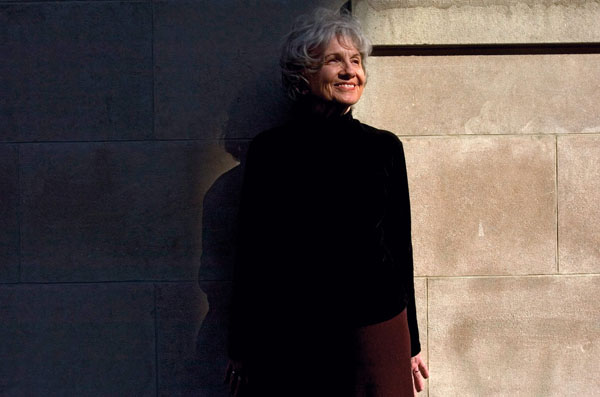The Nobel Prize in Literature 2013 has been awarded to Alice Munro, “master of the contemporary short story,” as the Academy calls her. To movie-goers, Munro is probably best known as the author of the story “The Bear Came Over the Mountain,” adapted in 2006 by Sarah Polley as Away from Her. Julie Christie stars as Fiona, a woman losing her memory to Alzheimer’s.
From the Academy: “Munro is acclaimed for her finely tuned storytelling, which is characterized by clarity and psychological realism. Some critics consider her a Canadian Chekhov. Her stories are often set in small town environments, where the struggle for a socially acceptable existence often results in strained relationships and moral conflicts–problems that stem from generational differences and colliding life ambitions. Her texts often feature depictions of everyday but decisive events, epiphanies of a kind, that illuminate the surrounding story and let existential questions appear in a flash of lightning.”
Updates, 10/13: “Few contemporary writers are more admired, and with good reason,” writes James Wood. “Everyone gets called ‘our Chekhov.’ All you have to do nowadays is write a few half-decent stories and you are ‘our Chekhov.’ But Alice Munro really is our Chekhov—which is to say, the English language’s Chekhov…. Yet many of Munro’s readers had sadly concluded that she was not, somehow, the kind of writer that the Nobel committee seemed to like; I had decided that she would join the list of noble non-Nobelists, a distinguished category that includes Tolstoy, Nabokov, Borges, Hrabal, Sebald, Bernhard, Ingmar Bergman—and Chekhov, as it happens. We were wrong, and for once it was wonderful to be wrong.” More in the New Yorker from Deborah Treisman and Sasha Weiss—plus a collection of appreciations from other writers.
The Guardian collects comments from A.S. Byatt, Anne Enright, and Colm Tóibín; the TLS gathers its reviews; and the Paris Review runs an excerpt from its 2001 interview with Lorrie Moore: “She is a great artist, alive and among us, and still writing as well as she did at the start—if not better, which is really saying something, since if you look again at Lives of Girls and Women, her first book, you will see it is a masterpiece, not like any other first book I can think of offhand.”
Nell Freudenberger for n+1 on Munro’s most recent book: “The experience of recognizing a moment of your own emotional life in a piece of fiction—the reason, I think, that most of us read fiction—is especially characteristic of Munro’s work, and it’s part of the extreme devotion she has inspired in her readers in the more than sixty years since she began publishing stories. The four stories that conclude Dear Life are the peak of this extraordinary career.”
For news and tips throughout the day every day, follow @KeyframeDaily on Twitter and/or the RSS feed. Get Keyframe Daily in your inbox by signing in at fandor.com/daily.




